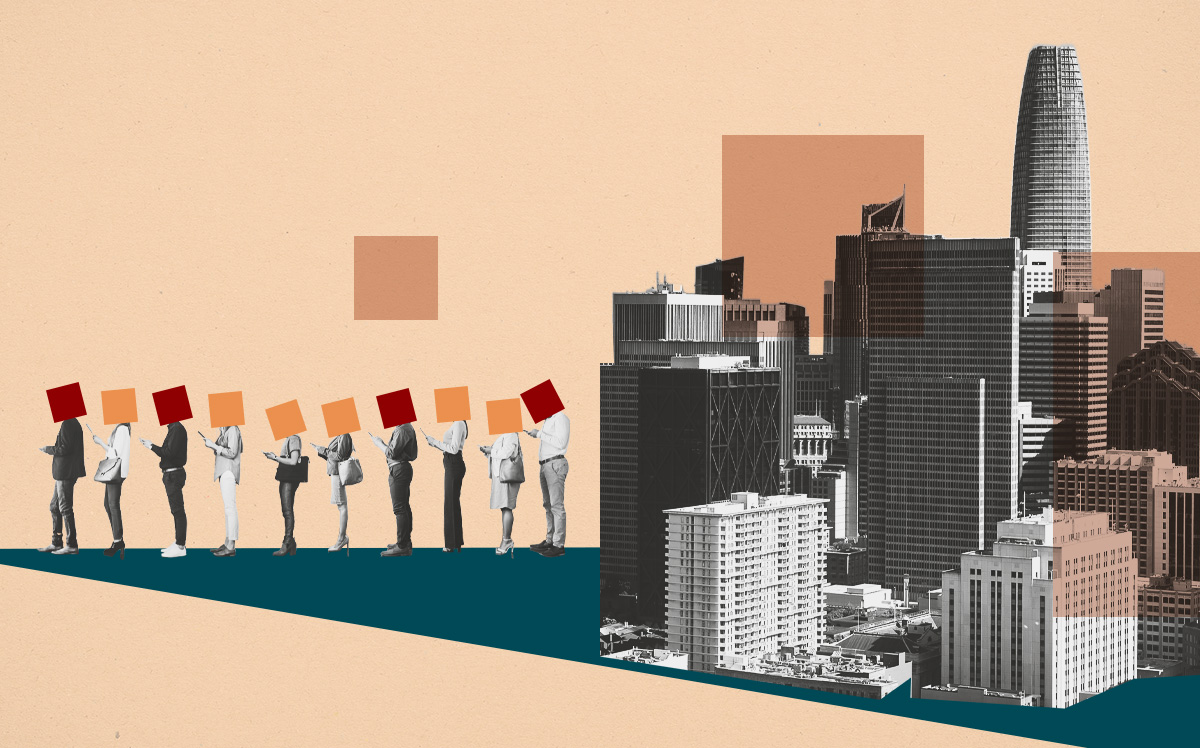How to fix the ghost town called Downtown San Francisco has become the latest battleground over the city’s future.
Mayor London Breed’s plan to use tax breaks to draw companies to the city’s empty Downtown has met stiff resistance from Connie Chan, budget chair on the city’s Board of Supervisors, the San Francisco Chronicle reported.
Last month, Breed proposed a plan to grant new companies that move to San Francisco up to $1 million off their gross receipts taxes for up to three years to help fill the vacant offices that plague Downtown. Chan’s committee will consider her legislation.
Chan, a political progressive, has already begun to push back against a plan to subsidize Downtown businesses.
She said the tax breaks could have unintended consequences in light of the city’s projected $728 million two-year deficit driven by a loss of business and commercial property tax revenues.
In light of the looming deficit, Chan indicated to reporters that she’s worried that the proposed tax breaks could reduce revenue for critical city services such as public safety.
Chan’s remarks, which echo comments she made after Breed announced the tax break proposal, suggest the moderate mayor may face headwinds getting plans to revive Downtown approved by progressives who dominate the board.
Also, Breed will have to contend with Chan’s opposition when she submits her budget proposal this spring.
Chan unveiled several “guiding principles” she said will shape her approach to the upcoming city budget negotiations.
They include temporary permit waivers to help pop-up businesses quickly set up in vacant storefronts — supported by Breed — and tying funding for city departments to performance audits to reduce waste.
They include securing state and regional funding to help make Muni free, which her office said could boost the city’s economic recovery by improving ridership – an idea once vetoed by Breed.
And they include a more regional approach to reducing homelessness, plus expanded child care services for working families.
“We’re not going to sacrifice these things at the expense of, if I may be frank, Downtown interests,” Chan said. “We have to think of the city as a whole and not just one area. We have to take a step back and hold ourselves accountable.”
The city’s empty Downtown has consequences for the city budget, which partly relies on taxes collected from commercial properties and large businesses with employees based in San Francisco.
Even if the city’s year-end savings materialize as expected, the two-year deficit would still stand at $652 million, according to a recent estimate from the controller’s office.
Downtown San Francisco now sees nearly 150,000 fewer office workers each workday than it did before the pandemic, according to a recent report from the board’s Budget and Legislative Analyst that was prepared at Chan’s request.
Office attendance Downtown was just 43 percent of its pre-pandemic level as of last month. The office vacancy in San Francisco is nearly 28 percent, according to CBRE, which has put the city on a national watchlist for “the most empty downtown in America.”
Net absorption — the change in tenant occupancy relative to the supply available in the market — saw an even more dramatic shift, plunging by a staggering 1,150 percent since the end of 2021 and totaling -1.4 million square feet.
Breed spokesman Jeff Cretan said in an email to the Chronicle that the mayor’s plan for Downtown was intended to “reinvent and reimagine” the area “so it can be the economic driver for our city and region.”
Breed has proposed delaying tax increases companies are supposed to see due to a 2020 ballot measure that is phasing out payroll taxes in favor of gross receipts taxes. Chan said she’s on board with that idea.
But she is not embracing a separate Breed proposal: a potential 2024 ballot measure that would broadly reform the city’s business tax structure.
— Dana Bartholomew
Read more



